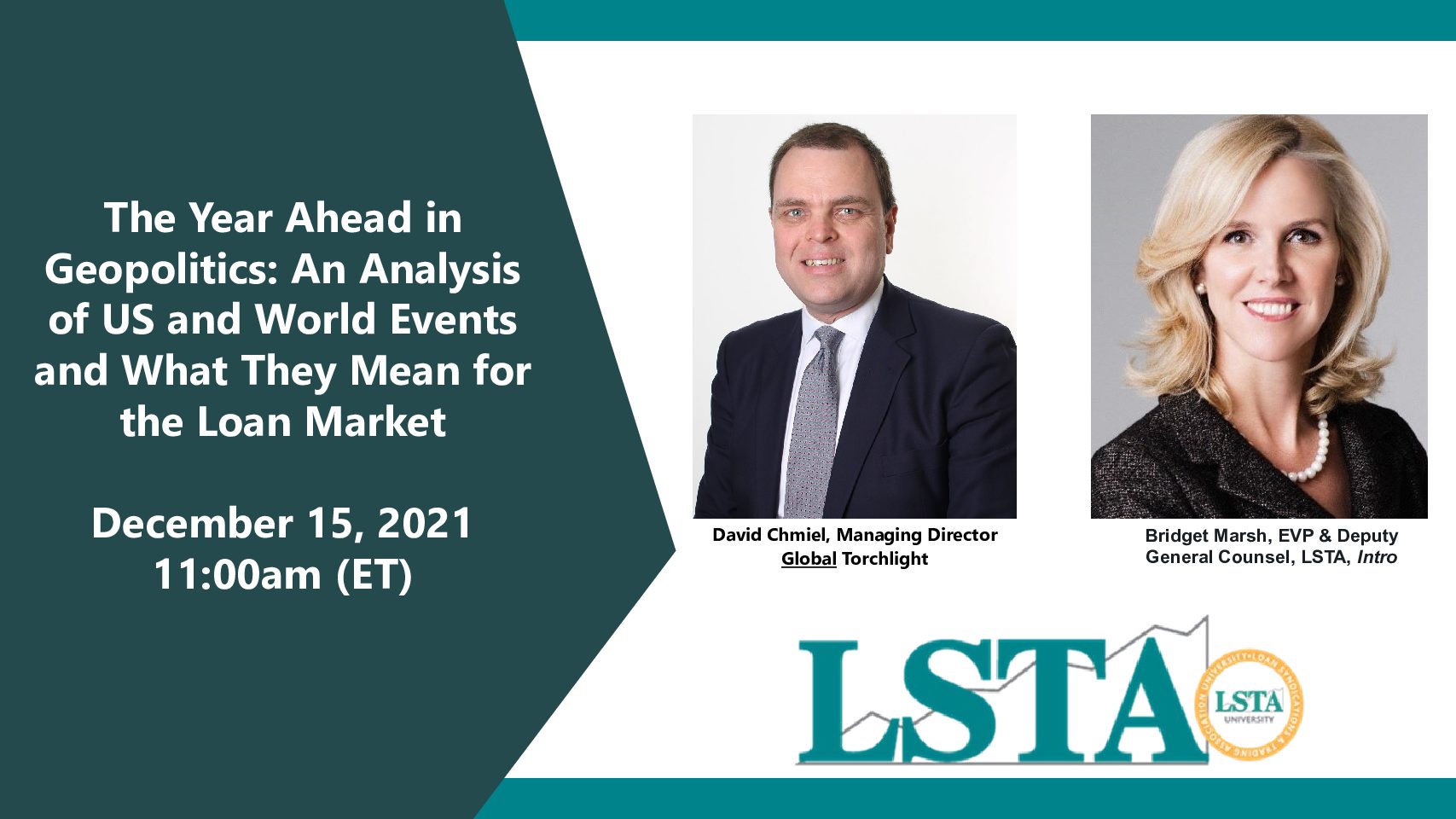December 16, 2021 - by Bridget Marsh. On December 15th, the LSTA hosted a webinar, “The Year Ahead in Geopolitics: An Analysis of US and World Events and What They Mean for the Loan Market“, presented by David Chmiel, Co-Founder and Managing Director of Global Torchlight. The presentation focused generally on three themes: first, the pandemic and its related politics; second, where we are in the global economy and whether we shall see a realignment of paradigms between governments and their economies around the world; and third – and Chmiel views this one as the major geopolitical trend in the medium to long term – the end the period where the US was the sole hegemonic (military) power and the shift to a multipolar world.
The pandemic is currently the most immediate source of disruption around the world, and government spending on the pandemic has been unparalleled (other than what governments have spent during war time). Public sentiment about their government’s handling of the health crisis varies around the world. Eighteen months ago, there was a general consensus amongst governments, with the exception of Sweden, about how to handle the pandemic, but today there is no longer such a consensus with public opinion about how to handle issues such as vaccination mandates, lockdowns, and vaccine passports differing greatly.
A key issue coming out the pandemic is whether the current structure of the global supply chain is acceptable. Although many still believe that free trade should be viewed as an opportunity for the economy, support for it has decreased, and thus the debate around this issue will likely continue. Interestingly, broken down along party political lines, support for free trade amongst Republicans has plunged dramatically in the past couple of years. Although President Biden has lifted some of the Trump era tariffs, the administration has recently doubled tariffs on Canadian lumber. Nevertheless, the Democrats are now the party of free trade, and that will influence how things play out in the coming elections.
There has also been a shift in sentiment towards foreign direct investment. Mexico is no longer in the top countries for attracting foreign direct investment because of President Obrador’s policies. On the other side of the world, in a recent poll of Australians of whether they favor foreign direct investment, even support for direct investment from the UK and US has declined. Notably, the data was fairly uniform across all income levels. Overall, it seems there is momentum to increase barriers to foreign investment around the world as the public becomes more nationalistic. Chmiel also discussed the impact which long term inflation (i.e., lasting for more than a few months) can have on a population; it can create insecurity and a demand for an extreme political response in certain circumstances. When food prices rose during the Arab spring in 2009, the rising prices and food insecurity fueled concerns about corruption and the lack of democratic accountability. If such pressures on food and energy prices continue, they can be the tinder for greater political concern.
Click here for the replay and slides; here for Chmiel’s article in Loans Magazine, “The Geopolitical Landscape in 2022: The Storm Rages On”; and here for his Practical Law article, “The Politics of ESG: What Financial Institutions Need to Know”.





